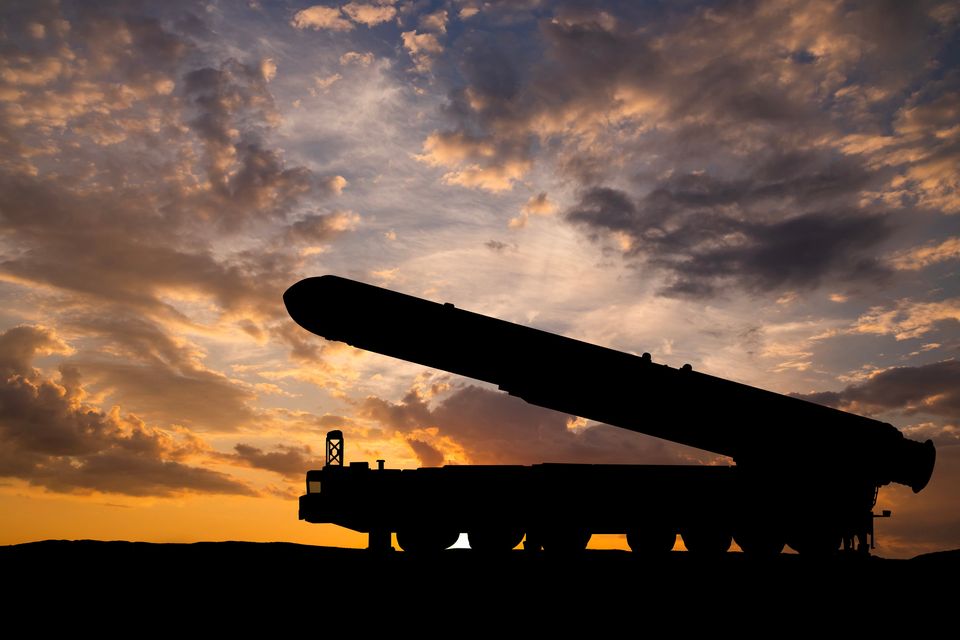World
Russia’s Cruise Missile System Raises Alarm in Ukraine and NATO

A recent test launch of the Russian cruise missile system, the Novator 9M729, has escalated tensions in Europe and raised concerns over NATO’s security. This missile, which can carry conventional and nuclear warheads, has been actively deployed against Ukrainian targets, with Ukrainian officials reporting at least 23 launches since August. The situation has prompted calls for international attention and potential military support.
The 9M729 missile is described as one of the most destabilising developments for Europe since Vladimir Putin ordered the invasion of Ukraine nearly four years ago. Kyiv has released intelligence indicating that this ground-launched system, designed specifically to strike Europe, poses a significant threat not only to Ukraine but also to NATO allies. The missile has a claimed range of 2,500 kilometers, contrary to Russia’s assertion that it only reaches 480 kilometers, which would have kept it within the bounds of the now-defunct Intermediate-Range Nuclear Forces (INF) Treaty.
The INF Treaty, signed in 1987 by leaders Ronald Reagan and Mikhail Gorbachev, aimed to eliminate ground-launched nuclear and conventional missiles with ranges between 500 km and 5,500 km. However, the treaty was effectively rendered void when Russia refused to dismantle its stock of the 9M729 in 2019, leading to the United States withdrawing from the accord. This history complicates current dynamics, particularly as Donald Trump is re-engaging in discussions about military support for Ukraine.
The missile’s recent use has prompted Volodymyr Zelensky, Ukraine’s president, to seek assistance from the United States, specifically requesting access to Tomahawk cruise missiles. The American system shares similar specifications with the 9M729, including a maximum range of 2,500 kilometers. In the past, the U.S. opted for air and sea-launched variants of the Tomahawk to comply with the INF Treaty, while Russia has persisted in developing and deploying its missile systems.
On October 5, 2023, a 9M729 missile launch in Ukraine resulted in significant civilian casualties, including the deaths of a family of four in the village of Lapaivka in the Lviv region. Reports indicate that the missile traveled over 1,200 kilometers before striking its target. The incident underscores the urgent need for international support for Ukraine as it faces relentless aerial attacks on its cities and critical infrastructure.
Ukrainian officials argue that the deployment of the Novator system not only challenges Ukraine’s defense capabilities but also highlights Russia’s unwillingness to engage in genuine diplomatic negotiations. Andrii Sybiha, Ukraine’s foreign minister, stated, “Russia’s use of the INF-banned 9M729 against Ukraine in the past months demonstrates Putin’s disrespect to the United States and President Trump’s diplomatic efforts to end Russia’s war against Ukraine.”
Security analysts are increasingly concerned about Russia’s apparent disregard for previous agreements, with some suggesting that the re-emergence of the 9M729 could signify a shift in the balance of power in Europe. John Foreman, a former UK defence attaché to Moscow and Kyiv, noted that the use of previously denied INF-range missiles represents a significant threat to European security and a challenge for NATO.
As the conflict continues, NATO must reassess its strategies in response to Russia’s missile capabilities. The alliance has previously increased its military presence in Eastern Europe and bolstered intelligence operations in light of Russian activities related to the 9M729. Should these missiles be launched at NATO territory, the eastern flank, including critical ports in the Baltic and Black Sea regions, would be within striking distance.
With the 9M729’s deployment, the ongoing war in Ukraine faces a new and dangerous dimension, compelling both NATO and the international community to reconsider their responses to Russian military actions. The outcome of this situation may hinge on the effectiveness of diplomatic efforts and military support aimed at stabilising the region and countering Russian aggression.
-

 Top Stories2 months ago
Top Stories2 months agoTributes Surge for 9-Year-Old Leon Briody After Cancer Battle
-

 Entertainment3 months ago
Entertainment3 months agoAimee Osbourne Joins Family for Emotional Tribute to Ozzy
-

 Politics3 months ago
Politics3 months agoDanny Healy-Rae Considers Complaint After Altercation with Garda
-

 Top Stories3 months ago
Top Stories3 months agoIreland Enjoys Summer Heat as Hurricane Erin Approaches Atlantic
-

 World4 months ago
World4 months agoHawaii Commemorates 80 Years Since Hiroshima Bombing with Ceremony
-

 Top Stories2 months ago
Top Stories2 months agoNewcastle West Woman Patricia Foley Found Safe After Urgent Search
-

 Top Stories4 months ago
Top Stories4 months agoFianna Fáil TDs Urgently Consider Maire Geoghegan-Quinn for Presidency
-

 World4 months ago
World4 months agoGaza Aid Distribution Tragedy: 20 Killed Amid Ongoing Violence
-

 World4 months ago
World4 months agoCouple Convicted of Murdering Two-Year-Old Grandson in Wales
-

 Top Stories3 months ago
Top Stories3 months agoHike Donegal’s Errigal Mountain NOW for Unforgettable Summer Views
-

 World4 months ago
World4 months agoAristocrat Constance Marten and Partner Convicted of Infant Murder
-

 Top Stories3 months ago
Top Stories3 months agoClimbing Errigal: A Must-Do Summer Adventure in Donegal









